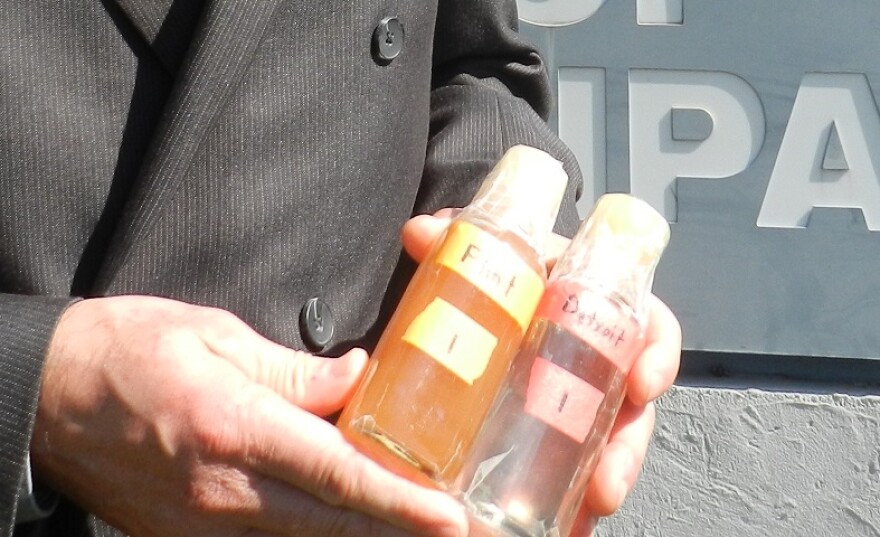A massive settlement of civil claims connected to the Flint water crisis received final approval Wednesday from a federal judge.
A “remarkable achievement,” that’s how U.S. District Court Judge Judith Levy describes the roughly $626 million settlement in her 178-page opinion.

More than 50,000 people have applied to be part of the settlement of claims against the state of Michigan, the city of Flint, McLaren Flint Hospital, and Rowe Professional Services.
The settlement sets aside nearly 79.5% for children exposed to Flint’s lead tainted tap water between 2014 and 2015.
Flint’s drinking water became contaminated after its drinking water source was switched from Detroit’s water system to the Flint River. The river water was not properly treated. The improperly treated river water damaged aging pipes connecting homes and businesses to city water mains. The damaged pipes leached lead into the drinking water.
“This is a historic and momentous day for the residents of Flint, who will finally begin to see justice served,” said Ted Leopold, the settlement’s co-lead counsel, “Though we can never undo what has occurred, this settlement makes clear that those who egregiously violate the law and harm their communities will be held accountable.”
The state of Michigan contributed $600 million to the settlement fund.
Michigan Attorney General Dana Neseel welcomed the judge giving final approval to agreement.
“For those who have endured the damage done by the Flint water crisis, I know this day brings only partial relief to what remains unimaginable hardship, but I hope this important settlement can be acknowledged as a positive step in the healing process,” said Nessel “The people of Flint deserve accountability and to be compensated for any injuries they suffered.”
While thousands of Flint residents have registered to be part of the settlement, many have objections to aspects of the agreement. Some complained about a thousand dollar cap on personal property damages. Others strenuously complained about the use of scanning equipment by some legal firms involved in the case to show their clients bones contained high levels of lead.
In the end, Judge Judith Levy rejected those objections in her opinion granting final approval to the settlement.
With the final approval of the settlement, the claims process can now begin.
This is a partial settlement. Some Flint residents opted out and may pursue individual lawsuits. There are also other businesses and government agencies that are not included in the settlement









